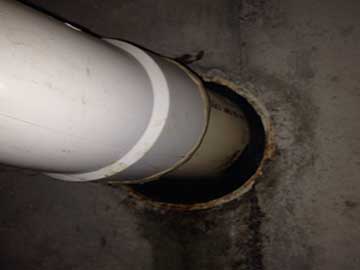
Back in the late 1970’s through the middle of the 1990’s – residential and commerical plumbers used polybutylene pipes to replace the older copper pipes in the plumbing systems. At the time – polybutylene was considered a superior product.
Polybutylene pipes are made out of a plastic resin material which meant that the product was cheap to purchase but more important, it was flexible and resistant to freezing which in turn made it a more superior product to the current pipe material which was copper.
The problem with copper pipes is…
- They have the tendency to corrode over time, dissolving and leaking into the water that is running through it.
- They are also very vulnerable to freezing and bursting which means they end up causing major leak problems
- They inevitably begin to get a buildup of deposits inside the pipe which in turn seeps into your water and decreases the flow of water through the pipes.
Fast Forward to 2018
The process of replacing polybutylene pipes in your home normally takes about 3-10 days and that includes repairing drywall, molding and of course, repainting the project areas.
If your home or business uses public water, then we often initially recommend replacing polybutylene piping with copper piping. But if your property uses well water, then we recommend CPVC to be installed.
However, we do like to make you aware of the newest piping product on the market in 2018 which is Pex Piping. It’s a plastic type of pipe that is as flexible as a garden hose. It’s resistive to freezing weather which will help to prevent pipe bursts in the winter. It’s easy to maintain and very fast to install.
Because these pipes are so flexible, there’s no joints, no glue making them more less likely to cause any problems with leaking.
It’s more expensive than copper and CPVC so it’s not used as much but as with most products – in time it may become more affordable for residential and commercial plumbing projects.
For outdoor plumbing we recommend PVC Piping which works well in the hot and cold temperatures that we get here in the Atlanta, Ga. area. The material is very lightweight making it easy to manage when installing. It’s flexible enough to customize to any size and is very resistive to breaks and tears. It can withstand temperatures up to 200 degrees Faherenheit.
CPVC pipes however, have to be glued at the joints which can break and leak. And CPVC pipes don’t handle the cold as well so in freezing temperatures they can burst
If you are considering replacing your Polybutylene pipes in your residential or commerical property, call the Atlanta experts – Atlantis Plumbing today at 770-505-8570. We are available 24 hours a day, 7 days a week.